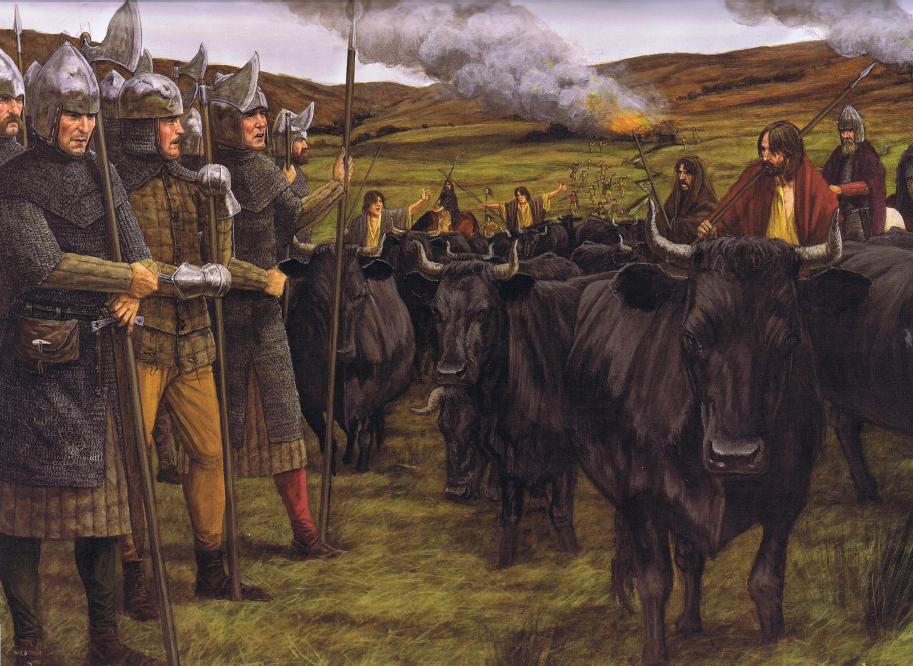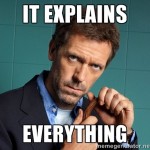Today I am honored to host my guest, storyteller Steven Posch, who shares his unique take on the Pagan cultural appropriation controversy.
Cattle-Raid: A Legend of the Dobunni
In the beginning of days, the Great Mother called all the peoples to her, her children, and to each people she gave its own proper food.
To the Cornovii she gave the deer to be their food, and indeed they are great hunters to this day. To the Brigantes, she gave oats to be their food, to the Iceni barley, to the Silures sheep, and so it was. To each people, its own proper food.
But to our people, to the Dobunni, to us she gave cattle to be our food, and their milk and their meat are indeed the best of foods.
Of all the peoples, it is to us that she gave cattle, and so it is that our young men will try their boldness and cunning by raiding the herds of others.
For since the Great Mother in her wisdom gave cattle to us, to the Dobunni, in the beginning of days, when others have cattle in their keeping—the Cornovii, the Brigantes, the Iceni, the Silures—it can only be that these cattle have been stolen from their rightful owners, which is to say from us, from the Dobunni.
So let no one be so foolish as to say that Dobunni steal cattle.
For everyone knows that no man can steal what is already his.
The Dobunni were that same people which in later days came to be known as the Hwicce. Some would say that from them and their ways come those we call witches and witchcraft.
And some would say otherwise.
Cattle Raids and Cultural Appropriation
As a storyteller, I tend to do much of my thinking through stories. In the much-vexed ongoing discussion of cultural appropriation it seemed to me that abstract theorizing may well benefit from the wisdom of narrative. So I began casting around for a story that treated with the topic.
Theorist Cei Serith always says, “When confronted with a new situation, first consult ancestral precedent.” The Received Tradition (or at least those portions of it with which I am personally conversant), has little to say on the topic of cultural appropriation directly, but in fact the practice has a surprising number of parallels with the grand old Keltic pastime (one could almost call it a sport) of the táin, the cattle-raid. The Kelts came by cattle-rustling honestly (so to speak): it would seem, in fact, to have been an ancient tradition of many Indo-European peoples (and, indeed, of pastoral cultures in general: compare the current problems with the self-same practice in South Sudan).
We have, to the best of our knowledge, no surviving mythology from the Dobunni, the Keltic tribe that inhabited the Severn basin and Cotswolds in what is now the south-west Midlands of England. (The “creation myth” that Stephen Yeates “recreates” in A Dreaming for the Witches cannot truly be called a story.) There seems to be good genetic and archaeological evidence to indicate that Dobunni population and culture survived into Anglo-Saxon times as the tribe known as the Hwicce. Maverick archaeologist Stephen Yeates would contend that the tribal religion of the Hwicce, with its strong continuities with the preceding Dobunni religion, is in fact what would become historic Witchcraft (and later, Wicca). Historical or not, it’s a powerful story, for which I will admit to a certain personal fondness, perhaps because some of my own ancestors hail from this same region.
So I’ve cast my putative origin-myth (to use the term loosely) for cattle-raiding in a Dobunni cultural setting. It is as authentic to both period and culture as I can make it.
The fact that I lifted the story directly from Masai mythology only adds savor to the stew. (I hope that I’ve managed to successfully recast and “naturalize” the story. Did I fool you?) As the Big Man (alias “Tombstone”) says: “This, my dear Spider Man, is what grown-ups call ‘irony.’”
Call it a “raiding of intellectual cattle,” if you like. The culture with the best stories always wins in the end.
References
For more on the Tribe of Witches, the early medieval Kingdom of the Hwicce, and Hwiccan mythology and religion:
Stephen J. Yeates, The Tribe of Witches: The Religion of the Dobunni and Hwicce (2008). Oxbow Books.
Stephen J. Yeates, A Dreaming for the Witches: A Recreation of the Dobunni Primal Myth (2009). Oxbow Books.
For more on Indo-European cattle-raids:
M. L. West, Indo-European Poetry and Myth (2007). Oxford.
For more on African and Indo-European pastoral societies and their parallels:
Bruce Lincoln, Priests, Warriors, and Cattle: A Study in the Ecology of Religion (2008). University of California.
Steven Posch blogs at http://witchesandpagans.com/pagan-culture-blogs/paganistan.html

















